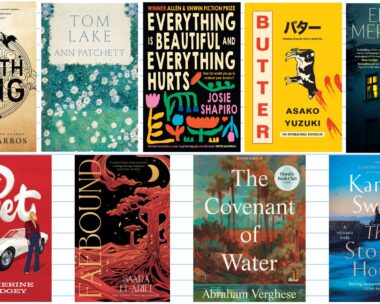The idea that being grateful has an impact on your health might sound a bit airy-fairy. But scientific studies actually back up the theory that gratitude is good for you.
A recent US study has found that being grateful can help to keep depression at bay.
The team of researchers from Texas and Pennsylvania found that getting into the habit of finding things to be thankful for can encourage positivity and help to steer people away from negative thoughts.
They found people who suffer from depression are often unable to show others how they feel and getting them to express feelings of gratitude helped them to open up.
Another study urged people with depression to write letters of gratitude to someone who had done something important for them but had never been properly thanked. Those who personally handed over the letters reported that their depression symptoms eased for at least the next month.
And subjects who wrote down one thing they were grateful for every day for three weeks reported feeling 25 per cent happier for the next six months.
But helping to deal with depression is not the only way that being thankful can help.

Other benefits include:
• Better heart health
Research carried out by the University of California San Diego’s School of Medicine found that people who were more grateful had healthier heart rhythms and less inflammation. Regularly showing your gratitude can also help lower blood pressure – high blood pressure is a risk factor for heart problems.
• Boosting your immune system
People who are thankful and optimistic about their lives have more efficient immune systems, according to another US study. The researchers found that law students who were more positive about their situations and regularly expressed gratitude had more disease-fighting cells in their blood.

• Experiencing less stress
Gratitude has the opposite effect on the body to stress, say some medical experts. One study showed levels of the hormone cortisol – which is produced by the body when you’re stressed – were 23 per cent lower in people who describe themselves as grateful, compared to those who said they had little to be thankful for.
• Being less tired
Thankful people tend to sleep better, which means they are less fatigued and have more energy than those who lie awake at night tossing and turning. Researchers have found that people who spend 15 minutes jotting down what they are thankful for before going to bed fall asleep more quickly and stay asleep for longer.

Other research into grateful people shows that they:
• Make health a priority and take better care of themselves. They are more likely to exercise regularly, eat healthily and have health checks
• Tend to eat less unhealthy dietary fat
• Have better relationships. Not only are they more appreciative of their loved ones, but it’s thought gratitude plays a part in producing the hormone oxytocin, which helps with bonding
• Are more giving. Those who feel thankful for what they have received are more likely to want to give back, whether it’s to family, friends or their community

How to become more grateful
Some people are naturally thankful, but if you’re not that way inclined, don’t worry, it is a habit you can teach yourself.
One of the best ways to practise gratitude is to keep a journal. Make a point of writing down each day what you are thankful for. It could be something as simple as doing fun activities with your children or having friends who care about you. The more you look for things to say thank you for, the more you’ll start appreciating aspects of your life.
After you’ve written a list, try sitting somewhere quiet, closing your eyes, focusing on one particularly good thing and paying attention to how it makes you feel. Meditating on it for just five minutes can help you feel calm.
You could also try writing letters, cards or emails of gratitude. Once a month, write to someone you’d like to thank, whether it is a good friend, your child’s teacher or the supermarket checkout operator who brightens your day with their smile. Expressing your gratitude to them helps you and it will make them feel good about themselves too.
For more from New Zealand Woman’s Weekly, visit our Facebook page, and follow us on Instagram.




